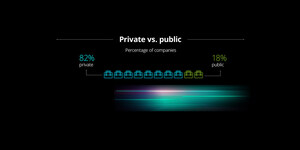WASHINGTON, Sept. 2, 2015 /PRNewswire/ -- Government has been slow to incorporate Internet of Things (IoT) technologies, but some leading public sector organizations are starting to benefit from early applications, according to a new report by Deloitte's GovLab think tank titled, "Anticipate, Sense, and Respond: Connected government and the Internet of Things." Researchers also identified ways government organizations can further use connected devices to transform service delivery.
The report, published by Deloitte University Press and part of a collection of articles on the Internet of Things, posits three ways in which these new IoT tools might redefine government work: eliminating routine tasks, enhancing capabilities, and engaging partners. To provide examples of each, Deloitte examined classic public sector domains where organizations could use these innovations to collect, measure, process and interpret information to create fresh approaches to solve problems that have traditionally stymied public service organizations.
To show the potential impact of IoT on government, Deloitte examined three areas – public education, public safety and public water utilities – where the IoT could be used to enhance current operations.
"This new wave of technology that includes wearables and any other object that can be connected to the Internet will ultimately change everything about the way the public interacts with government, from transportation to public safety, from education to human services," says William D. Eggers, director of Public Sector Research at Deloitte Services LP. "For example, our analysis demonstrates that IoT technology could provide data to police departments to enable them to better predict and prevent spikes in violent crime."
Education
Cognitive devices could alert a teacher to a student's concentration or stress levels, allowing the teacher to focus on students who need the most help, whether they ask for it or not. Educators with years of experience often develop an intuitive understanding of such complex behavioral dynamics, but a connected classroom could provide insights even to rookie teachers.
Public Safety
The IoT could be utilized to more quickly aggregate and analyze information about an event; examples include environmental sensors that recognize the sound of a gunshot and pinpoint its location within 10 feet, devices that monitor officers' stress levels or other anomalies, or connected weapons that signal when and where an officer removes a gun from its holster and discharges it.
Public Water Utilities
The IoT can create a more cohesive picture of the highly-fragmented water supply system to better manage the multiple issues from well to tap. For instance, sensors within water delivery systems can help identify, stop, and even fix leaks to improve delivery to customers. For agriculture use – which accounts for 70 percent of water consumption today – sensors with advanced algorithms can address problems of overwatering by analyzing how much water plants need and automatically adjusting supply.
"Public sector organizations have opportunities to employ IoT devices to improve outcomes for the public good, and should start analyzing their operations for opportunities to do so today," said Eggers. "Organizations that adopt a wait-and-see attitude toward the IoT are unlikely to develop the expertise or engender the trust needed to effectively and efficiently deliver services in this new reality and to reassure citizens concerned about how this new technology will affect them."
This report also includes the "Information Value Loop," a blueprint for how IoT technologies generate value.
About Deloitte Research
Deloitte Research, a part of Deloitte Services LP, identifies, analyzes, and explains the major issues driving today's business dynamics and shaping tomorrow's global marketplace. From provocative points of view about strategy and organizational change to straight talk about economics, regulation and technology, Deloitte Research delivers innovative, practical insights companies can use to improve their bottom line performance. Operating through a network of dedicated research professionals, senior consulting practitioners of the various member firms of Deloitte Touche Tohmatsu, academics and technology specialists, Deloitte Research exhibits deep industry knowledge, functional understanding, and commitment to thought leadership. In boardrooms and business journals, Deloitte Research is known for bringing new perspective to real-world concerns.
About GovLab
GovLab is a think tank in the Federal practice of Deloitte Consulting LLP that focuses on innovation in the public sector. It works closely with senior government executives and thought leaders from across the globe. GovLab Fellows conduct research into key issues and emerging ideas shaping the public, private, and nonprofit sectors. Through exploration and analysis of government's most pressing challenges, GovLab seeks to develop innovative yet practical ways that governments can transform the way they deliver their services and prepare for the challenges ahead.
About Deloitte University Press
Deloitte University Press publishes original articles, reports, and periodicals that provide insights for businesses, the public sector, and NGOs. Our goal is to draw upon research and experience from throughout our professional services organization, and that of coauthors in academia and business, to advance the conversation on a broad spectrum of topics of interest to executives and government leaders.
As used in this document, "Deloitte" means Deloitte LLP and its subsidiaries. Please see www.deloitte.com/us/about for a detailed description of the legal structure of Deloitte LLP and its subsidiaries. Certain services may not be available to attest clients under the rules and regulations of public accounting.
Logo - http://photos.prnewswire.com/prnh/20120803/MM52028LOGO-a
SOURCE Deloitte
Related Links
WANT YOUR COMPANY'S NEWS FEATURED ON PRNEWSWIRE.COM?
Newsrooms &
Influencers
Digital Media
Outlets
Journalists
Opted In





Share this article